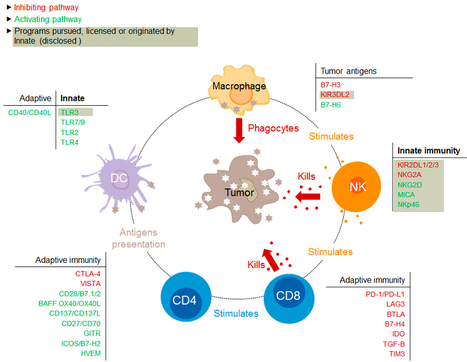MARSEILLE, France, April 16, 2015 (GLOBE NEWSWIRE) -- Innate Pharma SA (the "Company" - Euronext Paris: FR0010331421 - IPH), the innate immunity company developing first-in-class therapeutic antibodies for the treatment of cancer and inflammatory diseases, today announced that it has entered into a collaboration agreement with Sanofi to apply Innate Pharma's site-specific conjugation technology to the development of new Antibody Drug Conjugates ("ADC").
Innate Pharma’s innovative coupling technology uses bacterial transglutaminase (BTG) enzyme. It aims to address the heterogeneity of the coupling between the antibody and the drug of interest, heterogeneity that affects the therapeutic efficacy of antibody conjugates. With this technology, a single point mutation in the antibody’s heavy chain generates either two or four enzyme-recognition sites, and linkers have been optimized to couple quantitatively at these positions.
The process results in homogeneous ADCs with a drug-to-antibody ratio of exactly 2:1 or 4:1 in a robust and time-efficient manner. The coupling is site-specific with minimal antibody scaffold modification, therefore only adding two steps in an already well-established manufacturing procedure widely accepted by regulators.
Innate’s technology helps to generate homogeneous ADCs in 2 steps with an exact antibody / toxin ratio
Via Krishan Maggon



 Your new post is loading...
Your new post is loading...









BTG-ADCs are stable in vivo, without DAR variation over 2 weeks, with a lower clearance compared to ADCETRIS®. In addition, quantitative time-dependent in vivo biodistribution studies show higher tumor uptake than ADCETRIS® and exhibit lower non-specific liver and spleen uptakes, resulting in higher (>3 fold) maximum tolerated dose and therefore an improved therapeutic index.